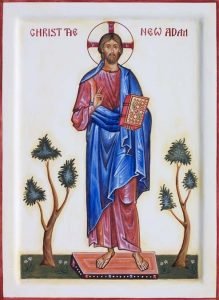 The early Church Fathers were great theologians, though they did not think of themselves as such. They were working pastors, involved in the daily life and leadership of their congregations. Yet they were wresting with some of the great and formative questions of the Christian faith, such as the Trinity, the incarnation, the providence of God and the nature of the church. These beliefs were defined in the crucible of spiritual leadership, pastoral care and theological conflict, all set against the background of the great cultural movements and events of their day. For the fathers, theology was a spiritual exercise woven into the texture of life.
The early Church Fathers were great theologians, though they did not think of themselves as such. They were working pastors, involved in the daily life and leadership of their congregations. Yet they were wresting with some of the great and formative questions of the Christian faith, such as the Trinity, the incarnation, the providence of God and the nature of the church. These beliefs were defined in the crucible of spiritual leadership, pastoral care and theological conflict, all set against the background of the great cultural movements and events of their day. For the fathers, theology was a spiritual exercise woven into the texture of life.
The first five hundred years of the church’s life were a period of intense biblical and theological ferment, reflection and development. Think of the momentous events of the first century CE itself. The early Christian community was birthed with the firm conviction that the God revealed to Abraham, Moses and David had acted finally and completely on humanity’s behalf in Jesus Christ. In the incarnation of the divine Word (Logos), sent by the Father into the midst of this present evil age, the life of the age to come had been dramatically introduced and manifested.
“In the beginning was the Word,” John writes and we hear declared on Easter (Velikden), “and the Word was with God and the Word was God” (John 1:1). How could this be? What strange kind of theological arithmetic was this? How could God be God and the Word be distinct from God and yet, simultaneously, also God? Exactly what Word was this? How as the Word related to God? To further complicate matters, John writes that this Word “became flesh and lived among us, and we have seen his glory, the glory as of a father’s only son, full of grace and truth” (John 1:14) In fact, this Son had become fully manifest in Jesus Christ, who as John puts it, “is close to the Father’s Heart” and had “made Him known (John 1:18). These statement are truly not only mysterious and breathtaking, but also complicated. Of course, John’s prologue to his Gospel is only the beginning of the story. The reader discovers that God has uniquely visited humanity in the person of Christ. Here we have an incarnate God, one who comes to serve, suffer, die and rise again, conquering the awful reality of sin in the process. It is truly a wonderful story, at first glance seemingly simple but increasingly much more complicated. This is our faith!
